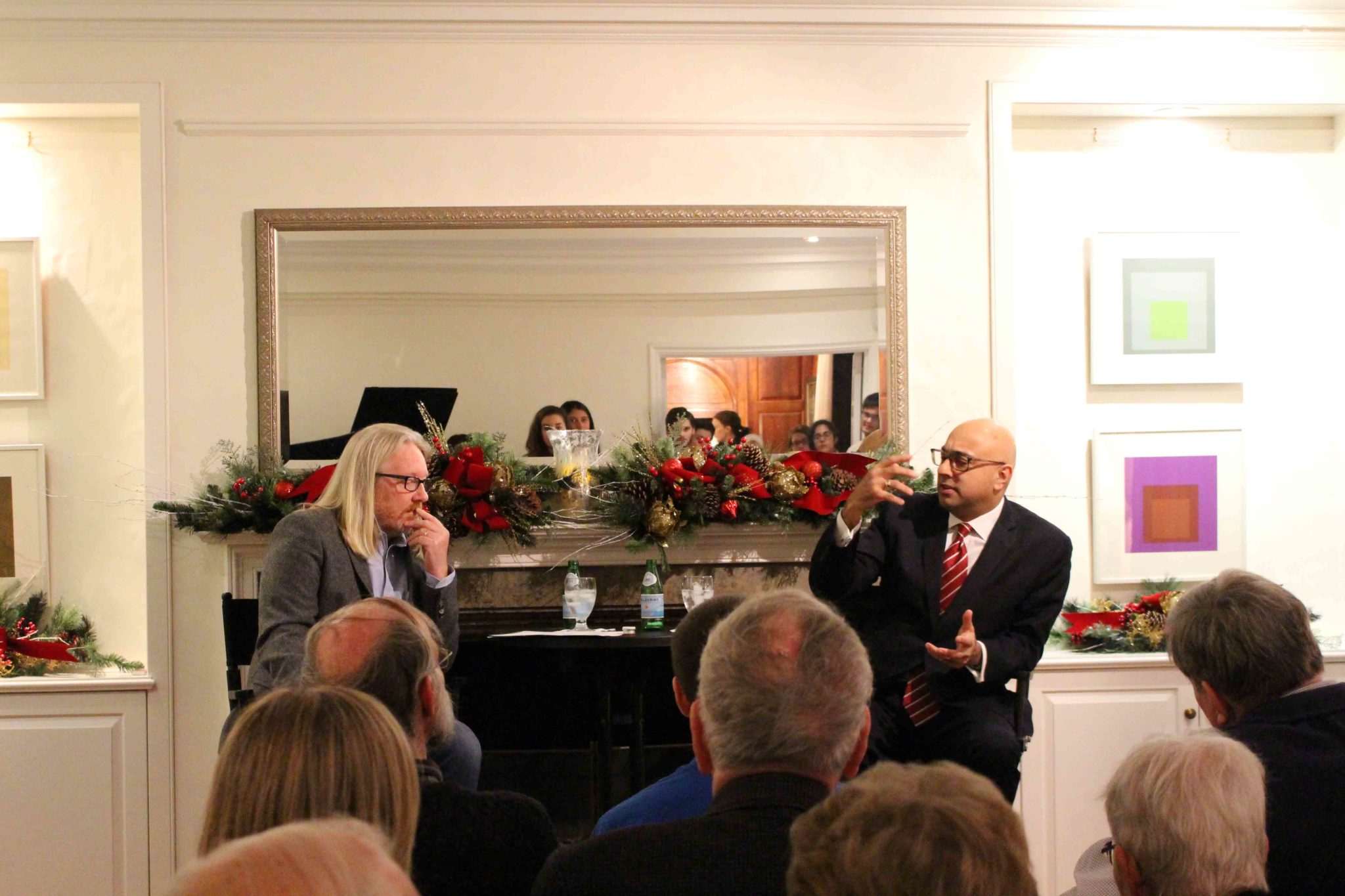
Ali Velshi has spoken to Nelson Mandela and former President Jimmy Carter, covered everything from hurricanes to the Syrian refugee crisis and anchored primetime business shows for CNN, Al Jazeera America and, now, MSNBC.
One would assume that Velshi dreamed of being a news anchor since childhood. But Velshi told students at a Jonathan Edwards College tea Thursday that, in fact, he stumbled into the world of TV news.
“In the summer between graduating and going to Columbia Journalism School, I got an internship from CNN. And I was really down in dumps about this because I thought TV was dumb,” Velshi said, to laughter from the audience. “I wanted to be a journalist.”
That internship led to Velshi’s 25-year-long and thriving career in television journalism.
At the tea, Velshi discussed a wide variety of topics ranging from his own career to trends in the media, politics and the economy.
In a recurring theme throughout the tea, Velshi argued that although he looks forward to debating with those who hold opinions contrary to his own, today’s public discourse is such that he must engage, for the most part, in fact-checking and merely “debunking myths.”
In response to a question from an audience member about bias in the news, Velshi said that, although it may not be possible to fully eliminate bias, it is certainly possible to ensure the news is factual. He proposed using artificial intelligence technology to instantly fact-check stories and rate news reports, journalists and organizations for factual accuracy.
“What if to consume your news, rather than going to The New York Times or the Yale Daily News, you have an app that ranks stories on a topic from the most reliable to the least reliable?” he suggested.
Velshi also commented on the recent firing of his colleague, Matt Lauer, from NBC, on account of several sexual assault allegations against him. He called for men in the workplace to understand the ways in which they perpetuate misogynistic workplace environments.
Moving on to a discussion of identity politics, Velshi acknowledged that his background as a Canadian Muslim born in Kenya and of Indian heritage has shaped him in certain ways. But he also insisted that it never affects the reports he writes or the guests he calls onto his show.
In attendance at the event was Erica Wachs ’18, Velshi’s step-daughter. She said having him on campus was “such a strange thing,” but that she is always proud of and humbled by Velshi’s knowledge and the work he does.
In an interview with the News after the tea, Velshi also offered some advice for aspiring journalists.
“In my world, you could work for the school paper and that was it. Now you could work for the school paper, publish a blog,” he said. “That’s a good piece of advice. There’s actual practical work to be done.”
He also said he was thrilled to visit campus and that it served as a refreshing break from the news bubble he usually occupies.
“I just end up thinking the future is in good hands,” he said.
Head of Jonathan Edwards Mark Saltzman said he was “delighted” by the conversation he had with Velshi.
He said he came in appreciating Velshi’s articulacy, especially on matters related to the economy, having watched him on television before. However, he said, he also enjoyed hearing about the whole range of experiences Velshi has had as a journalist.
“I’m impressed that he’s so optimistic,” Saltzman said.
Saumya Malhotra | saumya.malhotra@yale.edu







